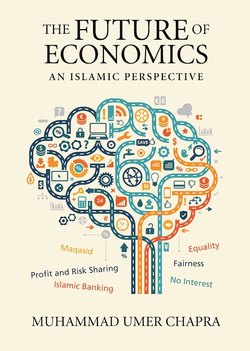Читать книгу The Future of Economics - M. Umer Chapra - Страница 5
ОглавлениеContents
Introduction: Is it Necessary to Have Economics with an Islamic Perspective?
Chapter 1: Conventional Economics
Conflict Between Goals and Worldview
Government Non-Intervention: The Symmetry Between Public and Private Interests
The Keynesian Consensus and its Breakdown
The Incomplete Scientific Revolution
Breakdown of Family and Social Solidarity
The Relevance of Islamic Economics
Chapter 2: The Islamic Paradigm Through History
The Dilemma: The Ideal and the Reality
The Rationalist Movement in the Muslim World
Reasons for the Downfall of the Rationalists
Contrast with the Western Enlightenment Movement
The Future of Rationalism in the Muslim World
Economics and Fiqh
Chapter 4: Islamic Economics:What Should It Be?
The Islamic Optimum
The Maqāṣid and the Mechanism
The Role of Faith
Self, Intellect, Posterity and Wealth
Unmanageable?
Definition and Scope
Methodology
Some Logical Steps
A Word of Caution
Science, Unseen Objects and Value Judgements
Realistic Assumptions
Chapter 5: Socio-Economic Dynamics of Classical Islamic Economics
Ibn Khaldūn’s Contribution
Interdisciplinary, Dynamic Model
The Role of the People (N), Justice (j) and the State (G)
The Role of the Sharīʿah (S)
The Role of Wealth (W) and Development (g)
Other Contributions of Ibn Khaldūn
Supply and Demand
Public Finance
Later Developments
Al-Maqrīzī
Shāh Walīullāh al-Dihlawī
Chapter 6: The Causes of Muslim Decline: Applying Ibn Khaldūn’s Analysis to Muslim History
Introduction
Part I: Are Islam and Moral Degeneration the Causes of Decline?
Is Islam the Cause of Decline?
Transformation of Human Beings and Institutions
Agricultural and Rural Advance
Urban Prosperity
Intellectual Advance
Is Moral Degeneration the Cause?
Part II: The Trigger Mechanism and its Effects
The Wrong Turn: The End of al-Khilāfah al-Rāshidah
Khilāfah and Democracy
Consolidation of Illegitimacy
Restraining Influence of the Sharīʿah
Living Beyond Means: Fiscal Imbalances
Grants of Large Iqṭāʿs and Tīmārs
Unjust Taxation
Debasing the Currency
External Borrowing
Corruption and Sale of Political Positions
Economic and Political Decline
Cracks in Solidarity Between G and N
The Stagnation of Fiqh
The Role of Sufism
Deterioration in the Position of Women
Decline in Education
Part III: Some ʿIbar (Lessons) of Muslim History
First Lesson
Second Lesson
Third Lesson
Fourth Lesson
Fifth Lesson
The Soft Landing
Failure to Learn the Lessons
Chapter 7: The Recent Revival: A Survey
Introduction
Centuries of Hibernation
The Rise from Slumber
Part I: Money, Banking and Monetary Policy
The Perplexing Question of Ribā
The Alternative
The Rationale
The Dream and the Reality
Establishment of Islamic Banks
Teething Problems
Some Criticisms
Evaluation of the Criticisms
Islamization of the Whole Financial System
Criteria for Evaluation
The Case of Pakistan
The Cases of Iran and Sudan
Monetary Management
Some Unanswered Questions
Why Did Islamic Modes of Financing Lose Ground?
Indexation
Late Settlement of Financial Obligations?
Concluding Remarks
Part II: Macroeconomics and its Microfoundations
Macroeconomics
Need Fulfilment
Optimum Growth and Full Employment
Equitable Distribution
Economic Stability
Microeconomics
The Theoretical Underpinning
Hypothetical Conclusions
The Unfinished Task
Part III: Public Finance
Taxation
Zakāt
Other Taxes
Principles of Spending
Restrained Deficits
Chapter 8: The Future Course of Action
Where to Start?
The Need for Political Reform
Can Peaceful Struggle be Successful?
Can the Revival of Islam be Helpful?
Is Islamic Economics on the Right Track?
Can Moral Values and Family and Social Solidarity be Dispensed With?
Are Institutions Necessary?
What About Solutions to Crucial Problems?
The Future Course of Action
A Task Far More Difficult than Conventional Economics
Bibliography
Index
